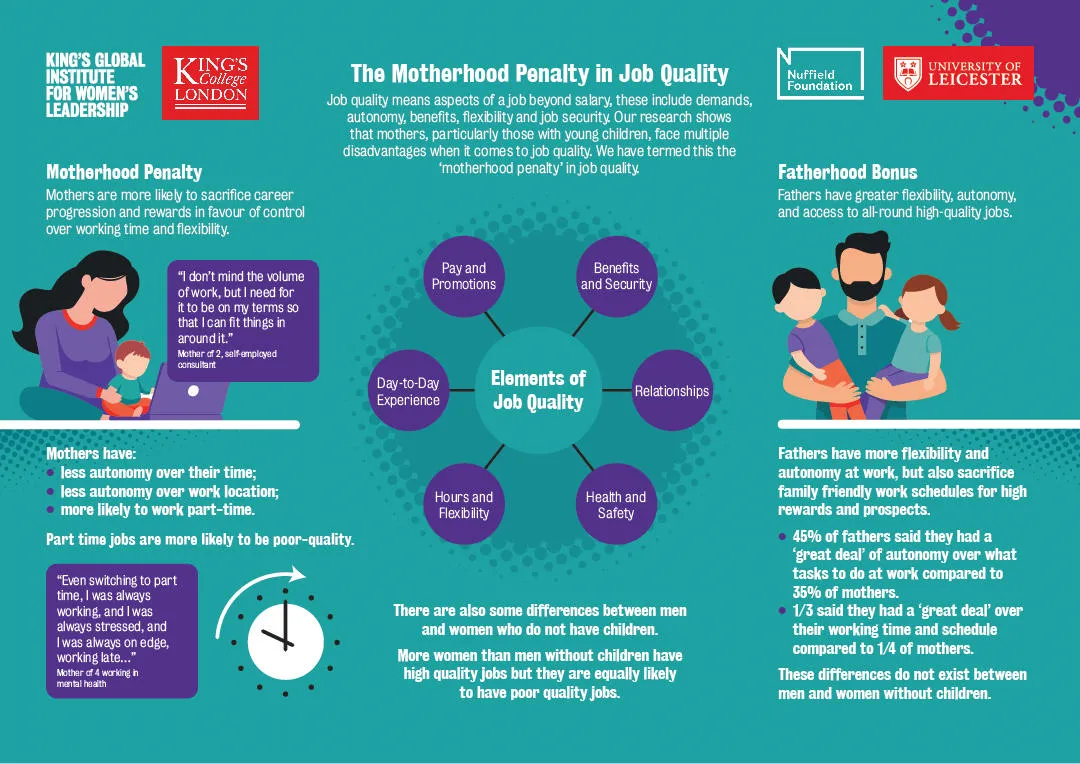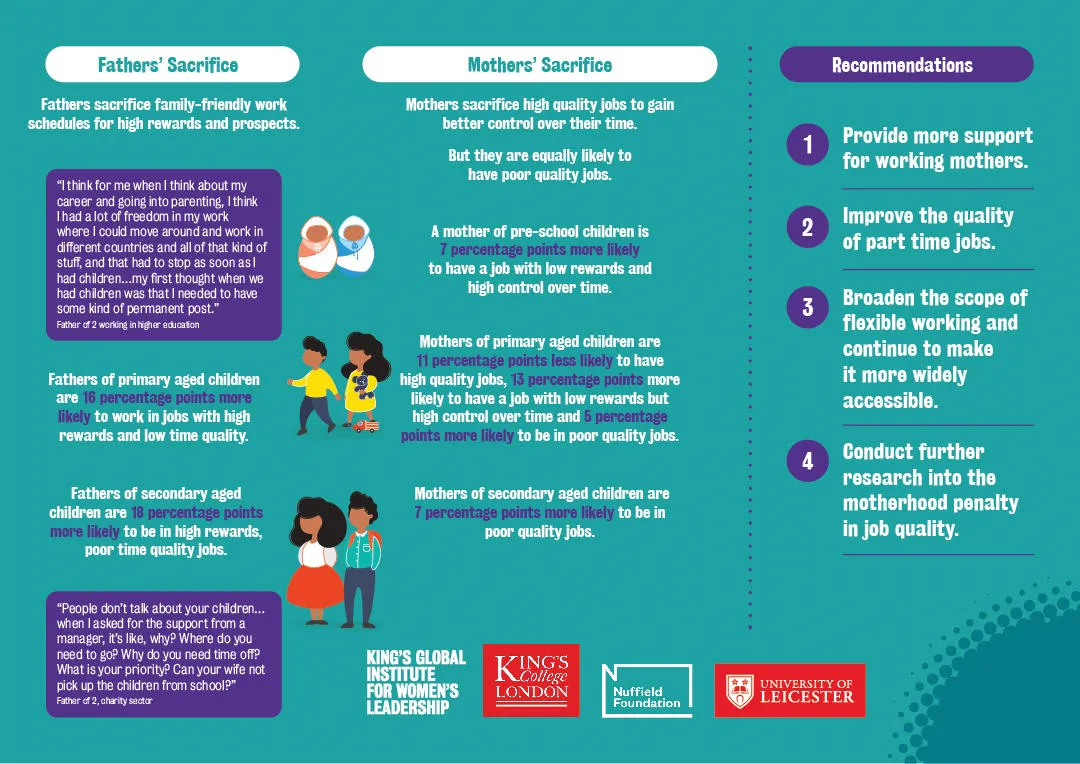Who can ‘have it all’? Job quality and parenthood in the UK
The transition to parenthood has become a central focus within research on gender inequality in the workplace, yet up to now, there has been little evidence on gender and parenthood-based differences in job quality. While gender differences in job quality - regardless of people’s parenthood status - are important to acknowledge, there are some job quality penalties that affect mothers uniquely.
This research shows that mothers, particularly those with young children, face multiple disadvantages when it comes to job quality. We have termed this the ‘motherhood penalty in job quality’.
Whilst pay is an important marker of a ‘good’ job, other aspects of work – such as the demands it places on workers, the level of control they have, working hours, flexibility and job security - also impact employees’ wellbeing significantly.
Contrary to the perception that mothers are less committed to work, 70% would continue to work even if they didn’t need to financially. Yet, mothers of young children, in particular, report having less autonomy at work. For instance, mothers with children under five are 10 percentage points more likely than fathers with similar-aged children to say they have ‘no control’ over their working time. This group of mothers are also 14 percentage points less likely than equivalent fathers to say they have ‘a lot of control’ over their work tasks.



